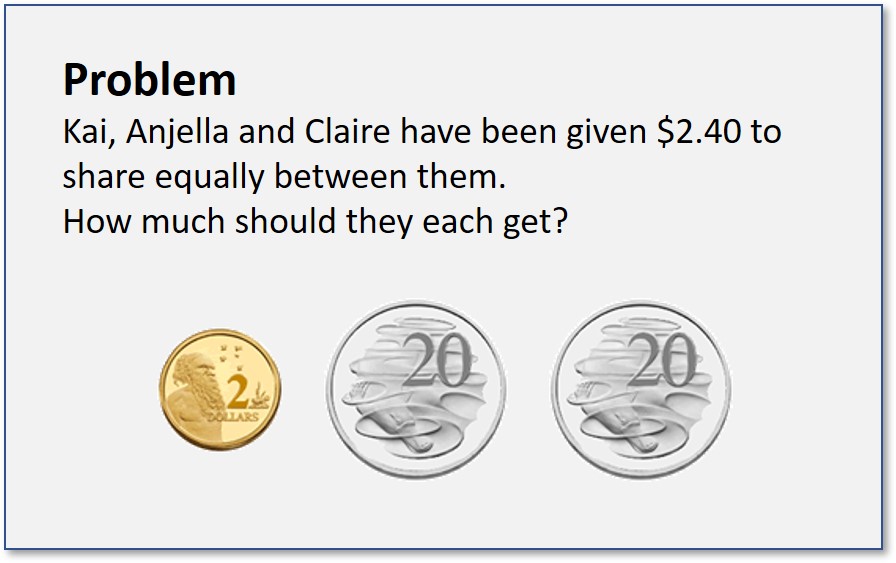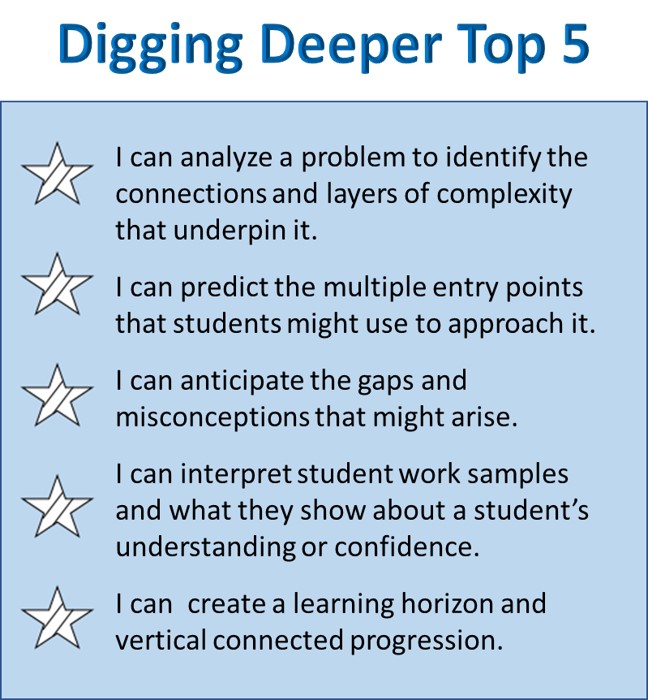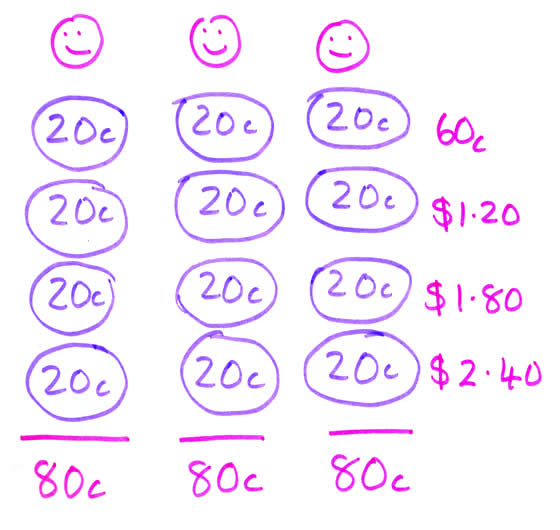Receive news, product launches and course info via subscribing to our mailing list here.
Digging Deeper
Digging Deeper into a simple money-sharing problem takes a deep look at the ways in which a problem can provide us with formative assessment information. This is a mini-course that can earn the participant a certificate for two hours of Professional Development.
The Top 5 for this course focusses on being able to identify the complexities that even a simple problem can contain, the effect of multiple entry points and the misconceptions that the problem might uncover. By presenting many examples of actual student solutions, we show what the student understanding and levels of confidence might be and discuss what action might follow these formative assessments.
Grade Level
Ideal for any teacher who wants to make the most of information that can be gathered from student responses to a typical maths problem.
This mini-course covers the following:
- Analyzing a problem to identify the connections and layers of complexity that underpin it.
- Predicting the multiple entry points that students might us to approach it.
- Anticipating the gaps and misconceptions that might arise.
- Interpreting student work samples and what they show about a student’s understanding or confidence.
- Creating a learning horizon and vertical connected progression.
After completing the material, participants are invited to send feedback on items developed in the course in order to obtain a 2-hour Professional Development Certificate.
Digging Deeper explicitly covers the following items in the Money and financial mathematics thread of the ACM. Year 1: ACMNA017, Year 2: ACMNA034 and Year 3: ACMNA059.
However, the course content is applicable to many other items in the ACM.
Similar ProductsYou may also be interested in...
Digging Deeper into a simple money-sharing problem takes a deep look at the ways in which a problem can provide…
Preventing the Numeracy Gap is about keeping up in the first place so that students won't be forever trying to catch up.
Mental Routines focus on learning the language of mathematics in a way that is engaging and productive.
Problematized Situations engage the learner in situations that are realistic to them and allow place the emphasis on mathematical thinking rather than right answers .
Trusting the Count is about making connections between counting, subitizing and estimations of group size.
The course modules include lessons that address the core aspects of trusting the count, activities for self-reflection and to try out with students plus other hands-on activities that can then be used in the classroom.





